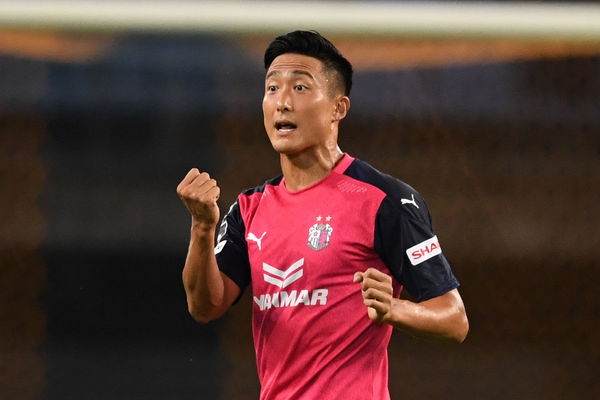

Watch What’s Trending Now!
Los Angeles Dodgers‘ two-way star recently went on paternity leave to be with his wife, Mamiko Tanaka, for the delivery of their first child. But little did he know that his decision would become a major issue back home in Japan. While it is standard in MLB, where paternity leave is guaranteed under the league’s collective bargaining agreement, in Japan, it’s far less common. And the ripple effect? A spark for something larger than any home run he has ever hit.
In Japan, fathers are allowed to take up to 52 weeks of paid parental leave under regulations. However, cultural expectations discourage men from fully utilizing that time. In fact, just over 30% of eligible Japanese men took paternity leave in 2023. Even those who took it usually did so for a short time or preferred to keep it private. Many Japanese league athletes are still expected to prioritize club commitments over family events.

Getty
SENDAI, JAPAN – AUGUST 12: Ken Tokura of Cerezo Osaka looks on during the J.League YBC Levain Cup Group B match between Vegalta Sendai and Cerezo Osaka at Yurtec Stadium Sendai on August 12, 2020 in Nagoya, Miyagi, Japan. (Photo by Masashi Hara/Getty Images)
So, when Ohtani unapologetically took paternity leave, he set a precedent for other Japanese athletes. One prominent voice emerged: Japanese soccer star Ken Tokura. While speaking in favour of official paternity rules in Japan’s leagues, Tokura said, “My daughter happened to be born on my day off, so I got to be in the delivery room, but if that wasn’t the case, I probably would have had to deal with lots of emotions. This is why the league needs to set up a ‘paternity list’ policy and a culture that encourages players to spend quality time with family.” Ohtani’s decision to take paternity leave not only defied social norms but also inspired other athletes to fight for change.
Interestingly, Ohtani wasn’t the only Japanese athlete to take an unapologetic paternity leave. Yusuke Nishiyama, a pitcher for Toyota Motor Corporation’s baseball team, took a whole month of paternity leave—something almost unheard of in Japanese pro sports. His decision has ignited a national debate in Japan about paternity leave and work-life balance—a wake-up call long overdue. Now, athletes are demanding formal policies to support paternal leave, enabling them to fully embrace fatherhood.
Ohtani’s two-day paternity leave may have a longer-lasting ripple effect. He has shown that fatherhood and athletic excellence are compatible by prioritizing his family at the peak of his career. In doing so, he could be transforming Japan’s sports culture off the field, much as he dominates on it for the Boys in Blue.
Shohei Ohtani’s ‘Dad Strength’ powers Dodgers
Ohtani’s return to the Dodgers lineup following paternity leave was characterized by a strong emotional and professional message. At first, he was struggling on the diamond, but he is back! In classic Ohtani fashion.
The two-way star hit a leadoff home run on the first ball he saw from Miami Marlins‘ Sandy Alcantara on Tuesday night, sparking a 15-2 rout. This marked his first home run as a father—an utterly special moment. “I haven’t hit one since being a father, so it’s a really nice one to be able to do that,” said Ohtani, through his interpreter.

It was Dodgers manager Dave Roberts, who previously joked about the concept of “Dad Strength.” He was implying that fatherhood could improve a player’s performance. After Ohtani demonstrated that Dad Strength, Roberts remarked, “Now that he’s a father, we might see some 120-mph exit velocities off the bat.” Ohtani’s 114-mph blast seemed to validate the theory.
Ohtani continues to excel on the field, but his actions off the field are changing how people view family and work responsibilities. His example may lead to a cultural shift in Japan that makes it easier for athletes to embrace fatherhood.
